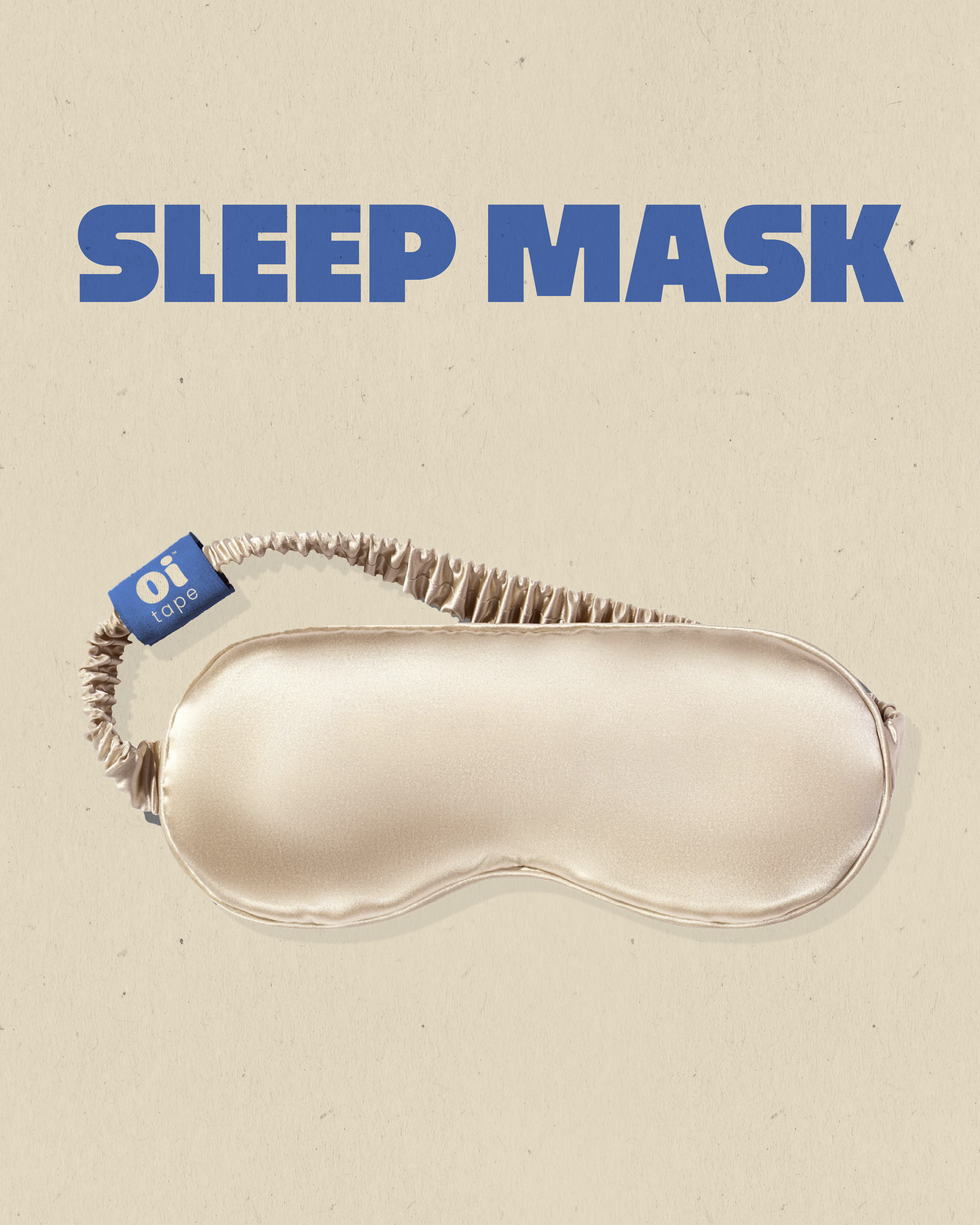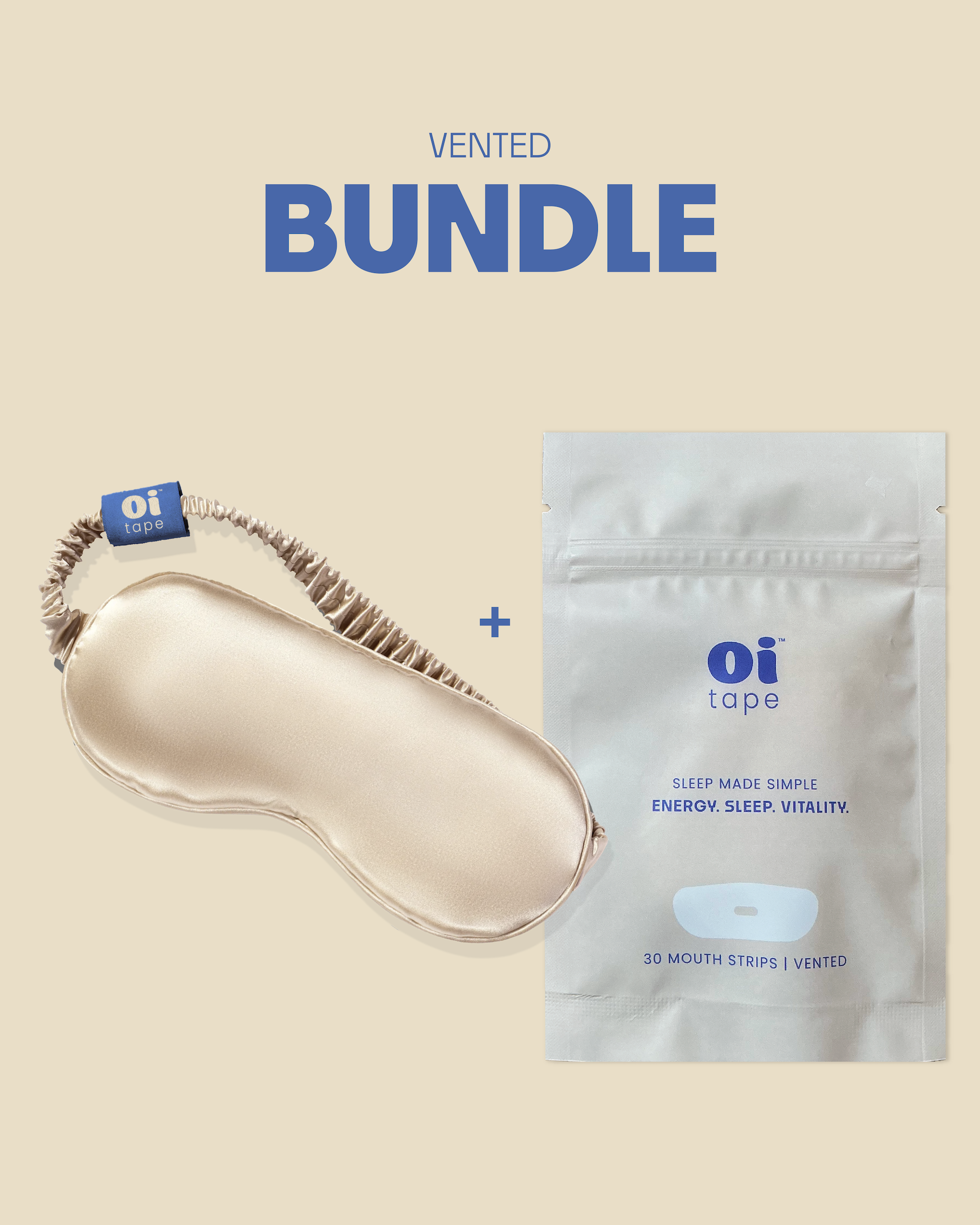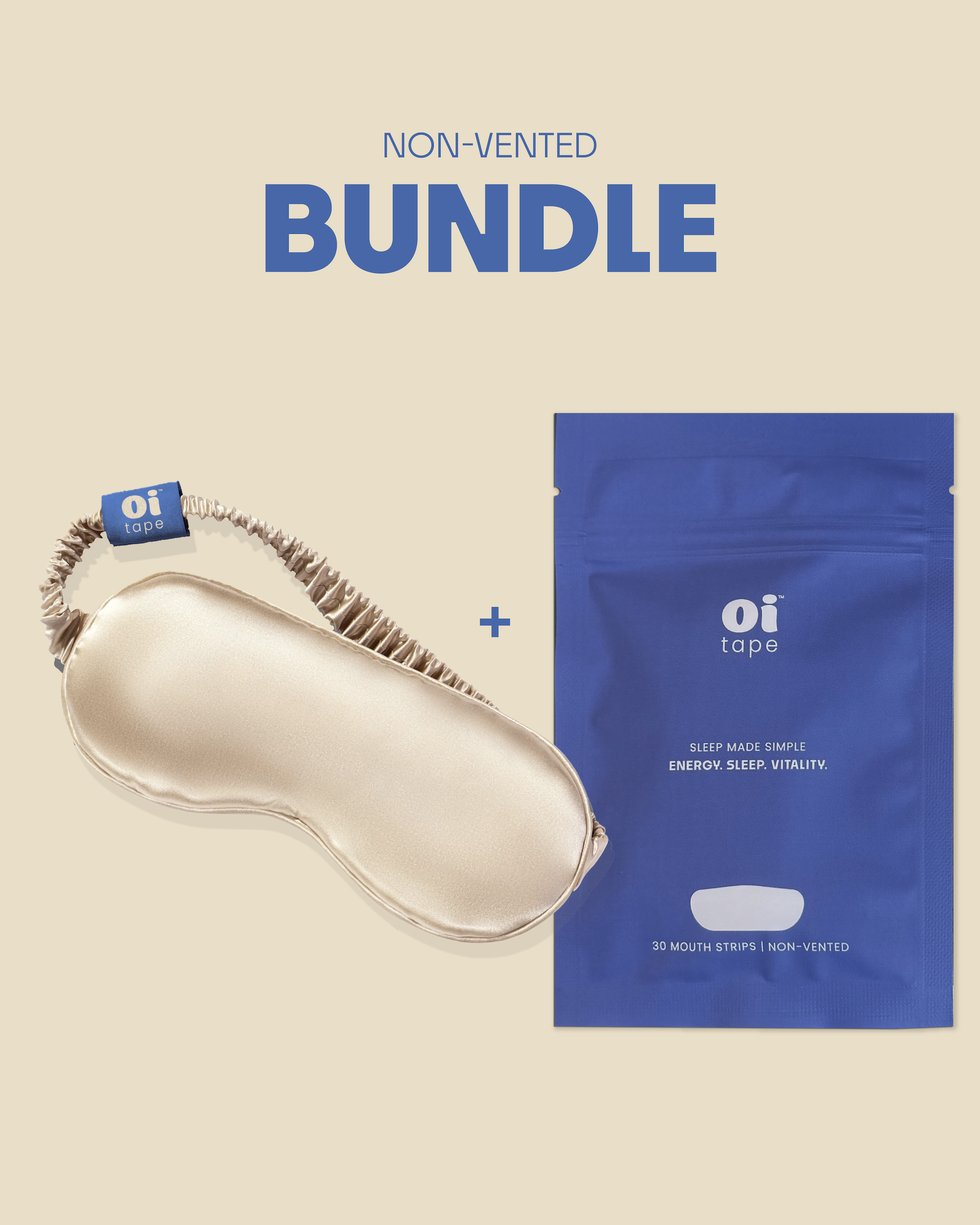

Exercise & Sleep: Maximize Rest and Recovery | oi tape™
The Importance of Sleep for Recovery
Sleep plays a fundamental role in rest and recovery, helping both the body and mind repair and rejuvenate. It includes several stages—light sleep, deep sleep, and REM (Rapid Eye Movement) sleep—each with a unique purpose.
-
Deep sleep supports physical recovery by promoting muscle repair, tissue regeneration, and protein synthesis.
-
REM sleep enhances mental restoration, improving memory, mood, and focus.
During deep sleep, the body releases growth hormone, which is critical for muscle repair and growth. Not getting enough sleep disrupts this process. It increases fatigue, reduces focus, and raises stress hormones like cortisol. This can cause muscle breakdown and slower recovery.
Prioritizing high-quality sleep ensures full muscle recovery, lowers injury risk, and enhances both workout performance and daily energy.
Exercise Timing and Sleep Quality
The timing and intensity of your workouts have a direct impact on sleep quality. Aligning exercise with your body’s natural rhythms supports deeper rest and better recovery.
-
Morning workouts help regulate your circadian rhythm, making it easier to fall asleep at night.
-
Afternoon workouts can reduce stress and promote relaxation before bedtime.
-
Evening workouts should finish at least three hours before sleep. Intense activity raises heart rate and adrenaline. This makes it harder to relax.
Staying consistent is important. Exercising at the same time each day helps your body clock. This can improve your rest and performance.
Best Practices for Enhancing Sleep Quality
Improving sleep hygiene can significantly boost rest and recovery after exercise. Consider these proven strategies:
-
Maintain a consistent sleep schedule. Go to bed and wake up at the same time daily, including weekends.
-
Limit screen time an hour before bed to avoid blue-light disruption of melatonin production.
-
Create a sleep-friendly environment. Keep your bedroom cool, dark, and quiet. Use blackout curtains, a supportive mattress, and soft bedding.
-
Adopt relaxation techniques. Try deep breathing, gentle yoga, or meditation before bed to relax your body and mind.
-
Establish a calming pre-sleep ritual. Aromatherapy, reading, or journaling can help you unwind and signal your brain it’s time for rest.
Small, consistent changes can dramatically improve your sleep quality and accelerate post-workout recovery.
Nutrition’s Role in Sleep and Recovery
Nutrition plays an integral role in both sleep quality and physical recovery.
-
Sleep-supportive foods: Almonds, kiwi, bananas, and turkey contain nutrients like magnesium and tryptophan that promote melatonin production.
-
Hydration: Staying hydrated helps regulate body temperature and recovery processes. However, avoid excess fluids close to bedtime to prevent sleep disruptions.
-
Smart supplementation: Magnesium can help reduce muscle tension. Melatonin may help regulate your sleep-wake cycle. This is especially useful for people with irregular schedules or jet lag. Always consult a healthcare professional before starting supplements.
Eating well-balanced meals and maintaining hydration supports better rest, energy balance, and muscle recovery.
Rest Days: Why They Matter
Rest days are vital for recovery and performance. Exercise causes small tears in muscle fibers that rebuild stronger during rest periods. Without adequate downtime, overtraining can lead to fatigue, decreased performance, and injury.
On rest days, try active recovery. Do low-intensity activities like yoga, walking, or stretching. This helps keep blood flow and flexibility without overdoing it.
-
Schedule 1–2 rest days per week, depending on your workout intensity and fitness level.
-
Listen to your body. Persistent soreness, fatigue, or irritability may signal the need for more recovery time.
Balancing exertion with recovery ensures sustainable progress and long-term health benefits.
Understanding Rest and Recovery
Rest and recovery are essential pillars of any successful fitness plan.
-
Rest allows your body to pause and repair naturally between workouts.
-
Recovery includes nutrition, hydration, sleep, and active techniques that restore energy and function.
There are two types of recovery:
-
Passive recovery: Complete rest—ideal after intense exercise or injury.
-
Active recovery: Gentle movement to improve circulation and reduce soreness.
Pay attention to your body’s cues. Fatigue, decreased motivation, or slower performance are signs to rest more. By prioritizing sleep, proper nutrition, and regular recovery strategies, you can maximize performance, resilience, and overall well-being.
Final Takeaway
Exercise and sleep are powerful partners in promoting health and performance. Prioritizing recovery, timing workouts effectively, and maintaining healthy sleep habits help your body recharge and perform at its best.
Embrace the connection between rest, recovery, and exercise to reach your full potential. Progress happens not during the workout, but while you rest afterward.





